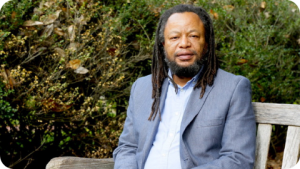Join the Global Studies dept on Wednesday, March 10th at 12:30pm PST to hear from new faculty member Assistant Professor Ricado Jacobs. His colloquium talk is titled: "Rethinking the agrarian question in the 21st century." Zoom link https://ucsb.zoom.us/j/84246564996
The agrarian question in the 20th and early 21st century has been the subject of sharply polarized debates. These debates, often Eurocentric in scope and focus, approach agrarian change through the over-determined category of ‘agrarian transition’; that is, the generalization of capitalist relations. The unintended consequence is to naturalize ‘primitive accumulation’ or ongoing dispossession, particularly in settler colonial societies. Strikingly, these debates often ignore the differential weight and effect of race, class, indigeneity, ethnicity and gender. In response to historical and ongoing racialized dispossession, we are witnessing a global explosion of insurgent agency from below including the Zimbabwe fast track land reform, the Zapatista movement, No Dakota Access Pipeline (#NoDAPL) Movement, Amadiba Crisis Committee against Australian Mining in South Africa, amongst others. The self- activity and independent self-organization of subaltern classes globally are important building blocks for rethinking anti-capitalist agrarian change; however, it has received limited attention of scholars with a few notable exceptions. The talk seeks to redress this lacuna by rethinking the agrarian question grounded in the self-activity and insurgent agency of subaltern classes. This shifts our analytic lens away from the mechanistic, linear, stageist approach that has narrowed the parameters in which the agrarian question has been debated.
Ricado Jacobs is Assistant Professor in the Department of Global Studies at the University of California Santa Barbara. His research focuses on the global political economy of urbanization, ecology and agrarian change, with a focus on Africa. His work examines how global capitalism and class struggle shapes race, ethnicity, indigeneity, gender and class at the local and global level. His current book project The Agrarianization of Urban Space: Historicizing the Insurgent Present in Southern Africa examines how agrarian class structures get mapped onto urban space, reconfiguring the urban ecological landscape and giving rise to a new urban agrarian politics.



